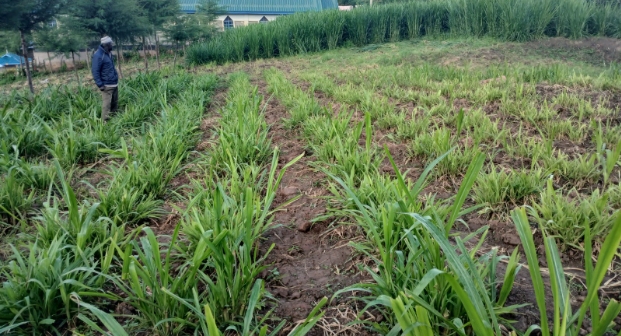 Most farmers are engaged in farming activities.
Most farmers are engaged in farming activities.
Despite agriculture employing over 60 per cent of the population in most COMESA member states, limited access to improved and certified seed varieties remains a significant barrier to food security and economic transformation.
Regional leaders and stakeholders are now calling for accelerated efforts to harmonize seed regulations and boost production and availability across borders.
"Agriculture continues to be the lifeline of our economies, employing over 60% of the population in most COMESA countries," said Agriculture PS Dr. Paul Rono, in a speech delivered on his behalf by Dr. Alice Murage, Director for Socio-Economic and Policy Development. "Yet, one of the greatest constraints to productivity is limited access to improved seed varieties."
Speaking at the COMESA Seed Harmonization Implementation Programme (COMSHIP) regional validation workshop in Nairobi, Rono pointed out the urgency of creating a seamless, integrated seed system across COMESA member states.
"Today, we come together not to merely reflect, but to reinvigorate our shared ambition of creating a regional seed system that allows farmers to access high-quality, certified, and climate-resilient seed varieties," he said.
He noted the establishment of COMSHIP in 2014, coordinated by the Alliance for Commodity Trade in Eastern and Southern Africa (ACTESA), as a key milestone in this journey.
"COMSHIP aims to facilitate cross-border seed trade, increase seed availability, and enhance the competitiveness of our agricultural systems through a harmonized framework for seed variety release, certification, and phytosanitary standards," said Rono. "A well-functioning regional seed system is the foundation for food security, climate resilience, and economic transformation."
Dr. John Mukuka, CEO of ACTESA, echoed the concern, citing a 2015 study that revealed about 130 million people in COMESA suffer from food insecurity, largely due to limited access to quality seeds.
“COMESA member states need around 2 million metric tons of improved seeds annually to meet food production demands, but currently produce only half a million metric tons,” he said. “This shortfall significantly contributes to food insecurity in the region.”
He pointed out that COMESA has vast agricultural potential, including fertile land and reliable rainfall, which remain underutilized.
“We can leverage the harmonized seed trade regulations to produce more staple crops like soybeans, maize, and barley within the region,” said Mukuka. “Egypt, for instance, consumes 12 million metric tons of barley annually but produces only 4 million. The remaining 8 million can and should be produced within COMESA.”
Mukuka stressed that full implementation of the COMESA Seed Trade Harmonization Regulations is critical. So far, only 10 member states, including Kenya, have domesticated these regulations.
“We need funding and political commitment to move this forward. The EU has supported us with COMSIS, a regional seed information system, but we must do more,” he said. “To become food secure, COMESA must produce at least 10 million metric tons of quality seed in the next two years.”
He estimated that operationalizing a functional regional seed system across all 21 COMESA member states requires at least $10 million annually, noting that $600 million in EU funding has already been secured.
According to Mukuka, the COMESA regional catalog currently includes 13 crops and 120 registered seed varieties by 20 companies. He believes tripling this figure would dramatically improve access to quality seeds.
Despite the availability of certified seeds from private sector players who control over 50% of the seed market, uptake among farmers remains low.
“To change this, we need to support national seed authorities and invest in extension services,” he said. “Demonstration plots are crucial. Farmers must see the difference between improved and recycled seeds with their own eyes. We call it farmer-driven awareness.”
Mshuka Kamwela, EU Programme Manager at the COMESA Secretariat, acknowledged the progress made under COMSHIP since its operationalization in 2015.
“This workshop marks the validation of COMESA’s Seed Information System (COMSIS), which will help us monitor and support the harmonized system,” said Kamwela. “Thanks to the EU’s 8 million Euro investment under the RECAMP initiative, we’ve been able to raise awareness, build capacity, and align national laws with COMESA’s seed trade regulations.”
She also pointed out EU's broader support for value chains including horticulture, agro-processing, and leather. "Our goal is to ensure that we support smallholder farmers and SMEs in agro-processing to contribute to regional food security,” she added.

![[PHOTOS] Ruto inspects his Naivasha farm](/_next/image?url=https%3A%2F%2Fcdn.radioafrica.digital%2Fimage%2F2025%2F06%2F72a14e8a-a040-48e1-87b3-597dbca6d7c6.jpeg&w=3840&q=100)









